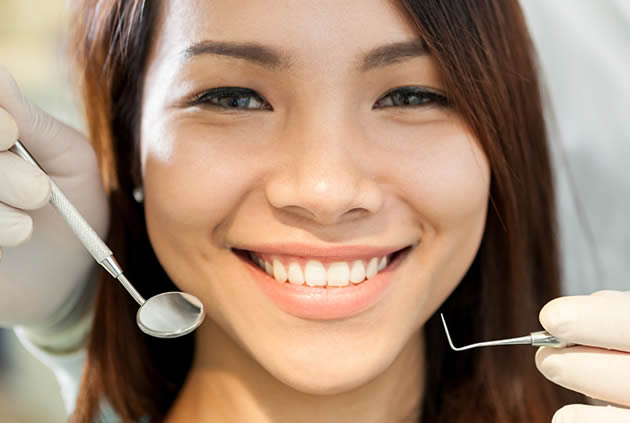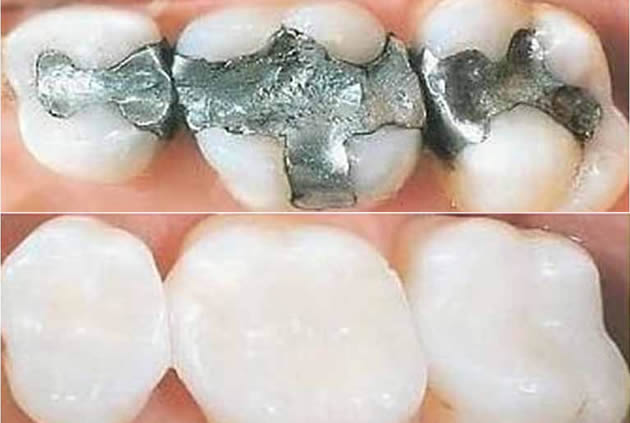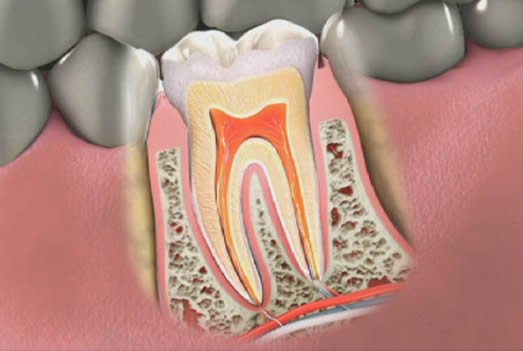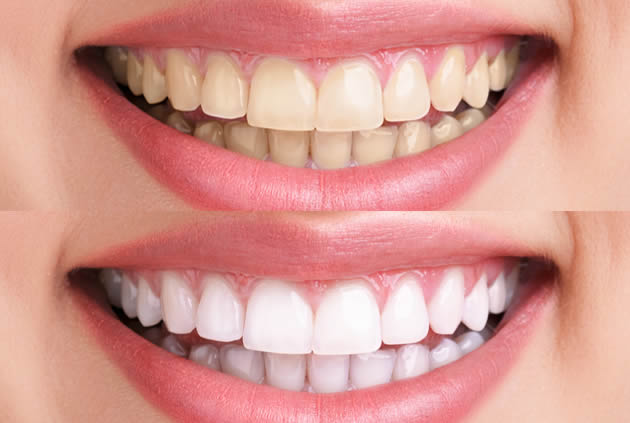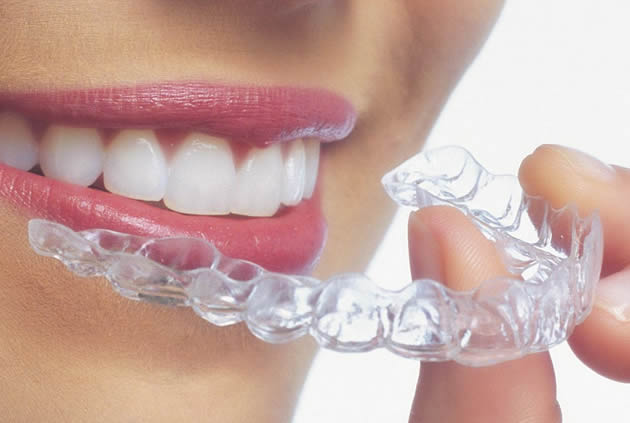
It seems that with each passing year, our lives become more hectic, scheduled, and harried. If you have children, there are the endless school events and music lessons and sports practices. Running from here to there can leave you less time for some of the most important things, like your oral hygiene.
Have you found yourself putting off your regular dental check-up? Has it been more than a year since you saw your dentist? Are your children up-to-date with their dental visits, but you’re falling behind? This can happen, especially as we place the care of others over the care of ourselves.
By choosing a family dentistry practice, this can be a thing of the past when it comes to your teeth! A family dentist can see each member of your family, from the youngest infant to the oldest retiree. All of your dental visits occur in the same office, so you won’t be jumping in the car to go yet somewhere else, stuck in traffic and feeling overwhelmed.
With family dentistry, you can schedule your appointments to have multiple family members seen back-to-back or at the same time. This is especially of interest to families with multiple children. Imagine having three or four appointments going on at the same time, and being done after the time of a single visit! Reduce the time you spend in the waiting room with squirming or unhappy children by choosing a family dentistry practice.
Your family dentist realizes that your time is extremely important, and that each member of your family is important and valued. A family dentist knows about all of the changes your teeth undergo over time, and is sensitive to this. It’s easy to make smile goals with your family dentist, as he or she will be there from the start to the finish.
Make the choice to simplify your life. Make it easy to keep you and your entire family smiling brightly. Choose a family dentistry practice today.
Are dental issues holding you back? Take control of your oral health by booking an appointment with our experienced team at our Baltimore dental office.
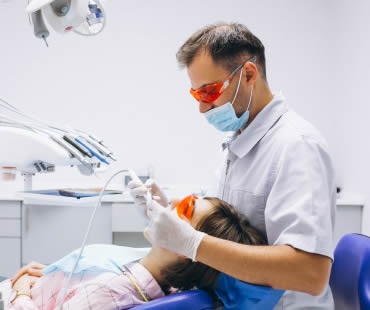
The traditional silver fillings that patients have been getting for many years have come into the spotlight in recent years. Some people wonder if these silver, or amalgam, fillings are safe because they contain small amounts of mercury.
Background
Amalgam fillings contain a mixture of half liquid mercury and half a blend of silver, copper, and tin. This material is soft and malleable, which makes it easy to be sculpted to fit well into the tooth and not affect the patient’s bite. Amalgam fillings have been used to fill cavities for over 150 years.
Risks
The concern about mercury as an ingredient in amalgam fillings is due to the health risks of toxicity or allergies associated with exposure. Significant mercury exposure can cause chronic illnesses, autoimmune disorders, birth defects, oral lesions, and mental disorders. The FDA has investigated the safety of amalgam fillings, however, and determined that the mercury levels are too low to present adverse health risks for adults or children over age six. It has also been deemed safe for nursing mothers to have amalgam fillings. Both the FDA and the American Dental Association maintain that these types of fillings are safe.
Alternatives
Patients who are uncomfortable with amalgam fillings may choose composite resin material instead. This newer type of filling is used in about 70 percent of fillings performed today, and many patients prefer the tooth-colored resin because it is less noticeable in the mouth than silver fillings. Patients who have concerns about amalgam fillings already in place may ask the dentist about switching to composite resin instead.
Take the first step towards optimal oral hygiene. Reserve your dental appointment at our Baltimore dental office now and experience personalized care.

When your tooth pulp that is located in the center of each of your teeth becomes damaged or infected, the best way to save the tooth is to have root canal therapy. This safe and effective treatment is not as painful as its reputation, and should not be avoided. Watching for signs that your tooth pulp has been compromised is an important step in saving your tooth, so that treatment may be performed before your condition becomes too advanced.
There are not always signs associated with a tooth that requires root canal therapy. Sometimes only examination, X-rays, and other tests will reveal problems. This is one reason regular dental visits are important. In other cases, symptoms are present to indicate pulp damage. Some typical signs include:
- Pain that is often related to inflamed tooth pulp, which can be caused by deep decay, chipped or cracked teeth, repeated dental procedures, faulty crowns, infection, tooth grinding, or periodontitis. Inflammation increases pressure inside the pulp cavity and triggers the tooth’s nerves. The pain may be in the tooth itself, or it can be referred to other areas in your mouth. Pain when eating or sensitivity to hot or cold is also common.
- Gum swelling near the damaged tooth
- Facial swelling
- Tooth loosening
- Pus around the damaged tooth
- Tooth discoloration, which usually occurs over a longer period of time. Discoloration can take weeks, months, or years to appear. This is another reason for regular dental checkups.
If you experience any of the symptoms above, or if your dentist identifies problems upon examination, it’s time to consider root canal therapy. Saving your natural tooth is almost always better than having to replace a lost tooth. Root canal therapy can help you keep your smile intact, as well as its function. Your natural sensations of a real tooth remain, as well as normal biting abilities. Don’t shy away from treatment; take care of tooth pulp problems when they arise.
Do you live in Baltimore or the surrounding area? Our team is ready to help you achieve your smile goals. Schedule your appointment today.

Family dentists care about you and your teeth from the moment you enter the world until the moment you leave it. They want to get to know you – and your teeth – and they have the expertise, knowledge, and skill to care for a child’s baby teeth and for his or her adult teeth. A family dentist focuses on preventative care, aiming to avoid any serious dental complications as you age.
Family dentistry offices are generally friendly, warm, and comfortable. They are specifically designed to put nervous or anxious children and adults at ease. The staff strives to build a relationship with each member of your family, offering a lifetime of dental care and advice on any issues that might arise.
A family dentist in Baltimore could treat more than one member of your family in a single visit. Booking more than one appointment per visit is extremely convenient, and it can save you valuable time and effort by allowing you to be seen while your spouse or child is seen in an adjacent area. Don’t drive all over town for your family’s dental needs; see a family dentist instead!
Your family dentist will provide you and your family with the necessary oral hygiene skills needed to have a lifetime of good oral health. Your family dentist will ensure that each member of your family has the latest recommendations regarding brushing, flossing, and rinsing to prevent tooth decay and plaque between appointments.
A family dentist provides all of the services a standard dentist does, such as regular dental cleanings, check-ups, and x-rays. Other preventative treatments include sealants and fluoride treatments. A family dentist is able to treat cavities with fillings or to handle gum disease. Basic cosmetic dentistry procedures like tooth whitening are also offered.
The primary difference for a family dentist is the length of time a family dentist wants to see you. A family dentist can treat you for the rest of your life, and will use the knowledge about you and your particular oral health history to make the best decisions regarding your care in any situation that might arise.
Are dental issues holding you back? Take control of your oral health by booking an appointment with our experienced team at our Baltimore dental office.

Modern lifestyles can be extremely stressful as many people have to deal with deadlines, demands and other frustrations that make up daily life. This can be an issue if you’re constantly under stress as it may affect your health. There are numerous health conditions that can be affected by high stress levels, and one of these is teeth grinding.
What Is Teeth Grinding?
Teeth grinding, or bruxism, is a condition that causes you to clench and grind your teeth together. It normally occurs during sleep so you may not even realize you have bruxism. This condition is likely to be identified by your family dentist in Baltimore due to teeth becoming worn down and chipped, or quite often a sleeping partner will complain about the grinding noise during the night.
What Does Stress Have To Do with Bruxism?
Teeth grinding has been linked to high levels of stress and anxiety. It’s been shown that people under stress are more likely to grind their teeth, particularly if they don’t have any coping mechanisms.
How Could Teeth Grinding Affect Me?
Teeth grinding can have more of an effect than you might imagine. It can cause teeth to become cracked, sensitive or even loose. Excessive grinding can damage the gums and bone surrounding your teeth, or may cause a painful disorder called TMD. This affects the jaw joints or temporomandibular joints, and can cause headaches, earache and facial pain.
How is Bruxism Treated?
Your dentist in Baltimore is likely to recommend a custom-made night guard which is worn while sleeping to protect your teeth and jaws from any further damage. It works through preventing your teeth from coming into contact. Additionally, you may be prescribed a muscle relaxant to help prevent clenching. It can be helpful to reduce stress levels through various measures which can include exercise, yoga, meditation or stress counseling.
Take the first step towards optimal oral hygiene. Reserve your dental appointment at our Baltimore dental office now and experience personalized care.

Modern dentistry allows people to keep their teeth healthy and strong. In fact, dentistry has evolved from folk practices to a medical discipline that follows scientific findings. Some common misconceptions still exist, including:
Myth: If I can’t see a problem with my teeth, they are fine, so I don’t need to visit the dentist.
Truth: Regular checkups are important even if you can’t see anything wrong. Sometimes, problems like decay and gum disease don’t present any signs until the condition progresses. Visiting the dentist for a routine exam twice a year allows the doctor to more effectively monitor your oral health.
Myth: Toothbrushes with hard bristles do a better job cleaning teeth.
Truth: Actually, most dentists recommend soft-bristled brushes because the hard bristles can remove tooth enamel, which makes your teeth more sensitive to hot and cold.
Myth: Root canal procedures cause pain.
Truth: When a tooth is severely damaged by trauma or deep decay, the soft nerve center called the pulp dies and pressure builds inside the tooth. Any discomfort you feel comes from the inflammation and infection. Most people actually feel better after a root canal, a procedure where the doctor removes the damaged tissue and seals the tooth to prevent further problems.
Myth: Teeth whitening will harm my teeth.
Truth: Both in-office and take-home teeth whitening options have evolved over the years. With a dentist’s supervision, you can safely and effectively brighten your smile.
Myth: Chewing sugar-free gum means I don’t have to brush my teeth.
Truth: Although sugar-free gum after meals may freshen breath and reduce plaque build up, you can’t use it as a substitute for brushing twice a day. Only regular brushing and flossing can get rid of the plaque already on teeth and remove food particles from between teeth.
Schedule a dental cleaning appointment today at our Baltimore dentists office.












